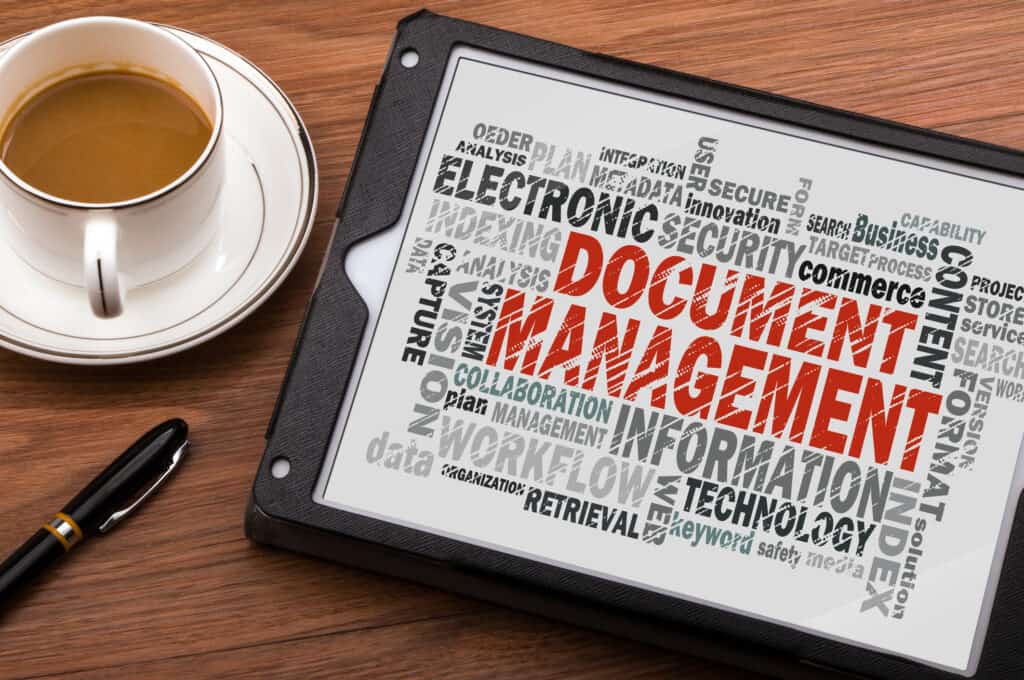In today’s fast-paced business environment, managing vast amounts of documents efficiently is crucial for success. Many companies are turning to Document Management Outsourcing Services to streamline their document-related processes. In this blog post, we’ll delve into the various aspects of these services, exploring what they entail, why companies opt for them, the different types available, and how they work.
What are Document Management Outsourcing Services?
Document Management Outsourcing Services involve delegating the responsibility of handling documents to a specialized third-party service provider. These services cover a spectrum of tasks related to document handling, from scanning and imaging to data entry and indexing, digital storage, retrieval, and even secure document destruction.
Why Do Companies Choose to Outsource Document Management?
Cost Savings:
One of the primary reasons companies opt for document management outsourcing is cost savings. By outsourcing, organizations can reduce overhead costs associated with maintaining an in-house document management team, infrastructure, and technology. Outsourcing providers often offer scalable pricing models, allowing businesses to pay only for the services they need.
Increased Efficiency:
Outsourcing document management tasks enables companies to tap into the expertise and efficiency of specialized service providers. This often leads to faster document processing times, improved accuracy, and a more streamlined workflow. Companies can focus on their core competencies, leaving the intricate document management processes in the hands of experts.
Access to Expertise:
Document management outsourcing services bring a wealth of expertise to the table. These providers are well-versed in the latest technologies and industry best practices. This expertise ensures that document-related tasks are executed with precision and compliance, reducing the risk of errors and ensuring the highest quality output.
Focus on Core Business:
By outsourcing document management, companies can shift their focus from routine administrative tasks to strategic initiatives. This allows for better utilization of in-house resources, fostering innovation, and driving overall business growth.
What are the Different Types of Document Management Outsourcing Services?
Document Scanning and Imaging:
This service involves converting physical documents into digital formats. Outsourcing providers use advanced scanning and imaging technologies to ensure high-quality and accurate digitization of documents.
Data Entry and Indexing:
Data entry and indexing services involve organizing and categorizing digital documents for easy retrieval. Outsourcing providers use automated systems and manual data entry processes to ensure accuracy and completeness.
Digital Document Storage and Retrieval:
Outsourcing companies provide secure digital storage solutions, allowing businesses to access their documents anytime, anywhere. This type of service often includes robust search functionalities, making document retrieval quick and efficient.
Document Destruction and Shredding:
Securely disposing of sensitive information is crucial for businesses. Document management outsourcing services often include secure destruction and shredding of physical and digital documents, ensuring compliance with privacy regulations.
How Does Document Management Outsourcing Work?
Assessment and Planning:
The process begins with a thorough assessment of the client’s document management needs. The outsourcing provider collaborates with the client to understand their specific requirements and develops a customized plan to address those needs efficiently.
Implementation:
Once the plan is finalized, the implementation phase begins. This involves setting up the necessary infrastructure, deploying technology solutions, and initiating the document management processes. Data migration, if required, is carefully executed to ensure a seamless transition.
Ongoing Management and Support:
Document management outsourcing is not a one-time task but an ongoing service. Providers offer continuous support, monitoring, and management to ensure the smooth functioning of document-related processes. Regular audits and updates are conducted to adapt to evolving business needs and compliance standards.
What are the Benefits of Outsourcing Document Management?
Cost Savings:
The most significant advantage of outsourcing document management is cost savings. Companies can eliminate the need for significant investments in infrastructure, technology, and personnel, opting for a cost-effective pay-as-you-go model.
Increased Efficiency:
Outsourcing leads to increased operational efficiency. Specialized providers leverage advanced technologies and streamlined processes, resulting in faster document processing, reduced errors, and improved overall workflow.
Enhanced Security and Compliance:
Document management outsourcing providers prioritize security and compliance. They implement robust security measures to protect sensitive information and ensure compliance with industry regulations and privacy standards.
Improved Customer Service:
Efficient document management positively impacts customer service. Quick and accurate access to information allows businesses to respond promptly to customer queries and requests, enhancing overall customer satisfaction.
Conclusion
Document Management Outsourcing Services offer a strategic solution for businesses seeking to optimize their document-related processes. By leveraging the expertise of specialized providers, companies can achieve cost savings, increased efficiency, enhanced security, and improved customer service. As technology continues to evolve, embracing document management outsourcing becomes a forward-thinking approach for businesses aiming to thrive in a competitive landscape.

